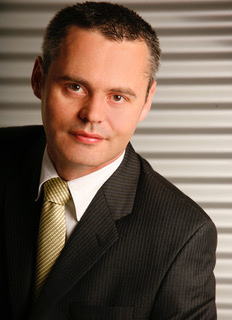Clinical Personalization of Computational Models of Total Heart Function

Keywords
Computational Medicine for the Cardiocirculatory System
Speaker:
Gernot Plank
Affiliation:
Medical University of Graz, Austria
When:
Thursday 24th October 2019
Time:
14:00:00
Where:
Aula Consiglio VII Piano - Edificio 14, Dipartimento di Matematica POLITECNICO DI MILANO
Abstract:
Advances in numerical techniques and the ever increasing computational power have rendered the execution of forward models of total heart function feasible. Using such models based on clinical images and parameterized to reflect a given patient's physiology, are a highly promising approach to comprehensively and quantitatively characterize cardiovascular function in a given patient. Such models are anticipated to play a pivotal role in future precision medicine as a method to stratify diseases, optimize therapeutic procedures, predict outcomes and thus better inform clinical decision making.
However, to translate modeling into a clinically applicable modality a number of key challenges have to be addressed. In particular, expensive computational models must be made efficient enough to be compatible with clinical time frames. This can be addressed either with hierarchical models of varying complexity which are cheaper to evaluate, by using computational efficient techniques such as spatio-temporal adaptivity, or by exploiting the power of new HPC hardware through massive parallelization or the use of accelerators. Further, the etiology of most cardiac pathologies comprises Multiphysics aspects, requiring the coupling of various physics, which may be characterized by very different space and time scales, rendering their coupling a challenging endeavor. Finally and most importantly, to be of clinical utility generic models must be specialized based on clinical data, which requires complex parameterization and data assimilation procedures to match model behavior with clinical observations.
In this presentation, I will give an overview of our multi-physics forward modelling framework and our recent work on m personalising models using clinical data.
contact: alfio.quarteroni@polimi.it
This seminar is organized within the ERC-2016-ADG Research project iHEART - An Integrated Heart Model for the simulation of the cardiac function, that has received funding from the European Research Council (ERC) under the European Union’s Horizon 2020 research and innovation programme (grant agreement No 740132)
Note:
Gernot Plank is Professor of Computational Cardiology at the Medical University of Graz, Austria. He received an M.Sc. Degree in Electrical Engineering in 1996 and a Ph.D. degree in Biomedical Engineering in 2000, both from the Technical University of Graz, Austria. He has been a Postdoctoral Fellow at Technical University of Valencia, Spain (2000–2002), at the University of Calgary, Canada (2003, supervised by Prof. Vigmond) and, as a Marie Curie Fellow, he held a Visiting Faculty position at the Johns Hopkins University, USA (2006–2008, supervised by Prof. Trayanova). In 2008 he became Academic Fellow at the Oxford e-Research Centre and the Oxford Computing Laboratory at the University of Oxford, UK before being appointed as Associate Professor in 2011, and a full Professor of Computational Cardiology at the Medical University of Graz, Austria.
His research is focused on the development of anatomically accurate and biophysically detailed in silico models of cardiac function to gain mechanistic insights into electrophysiological, electromechanical and mechano-fluidic behavior in health and disease. His work has a strong translational component centered on improving diagnosis and treatment of cardiovascular diseases with the main focus on pacing therapies to treat arrhythmias and pump dysfunction. In this regard parameter identification and data assimilation strategies for personalizing models to a specific patient have become a major avenue of research in his lab. Jointly with Dr. Vigmond (LIRYC, Bordeaux, France) he is the key developer of the cardiac modeling software CARP.
